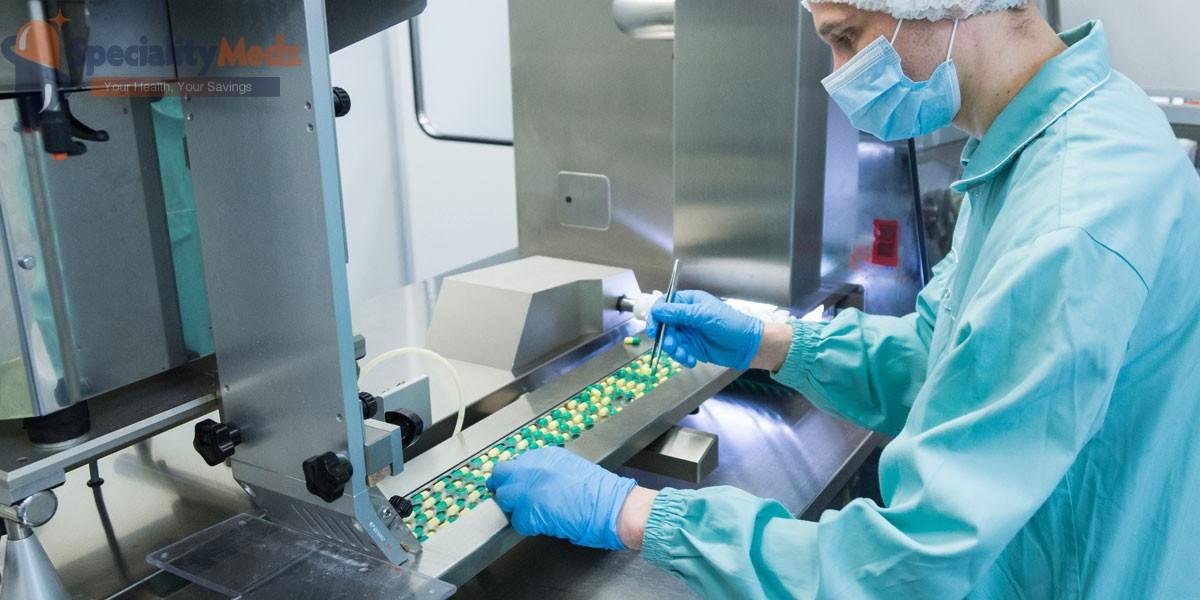Modern medicine has revolutionized healthcare by offering life-saving drugs that combat a wide range of diseases. These medications play a crucial role in treating chronic illnesses, infectious diseases, and life-threatening conditions, significantly improving the quality and longevity of life. From antibiotics to antiretroviral drugs, pharmaceutical advancements continue to push the boundaries of medical science. One such drug that has transformed HIV treatment is Abacavir, manufactured by reputable pharmaceutical companies worldwide.
The Role of Life-Saving Drugs
Life-saving drugs are essential for treating severe medical conditions, including cancer, cardiovascular diseases, and infectious diseases like HIV/AIDS and tuberculosis. These medications not only enhance survival rates but also improve patients' overall well-being by alleviating symptoms and preventing disease progression.
Combating Infectious Diseases
Life-saving drugs have played a critical role in controlling infectious diseases. Vaccines, antibiotics, and antiviral medications have drastically reduced mortality rates. The development of antiretroviral drugs, particularly those used in HIV treatment, has allowed millions of individuals to lead longer and healthier lives.
Cancer Treatment and Management
Oncology drugs such as chemotherapy agents, targeted therapy drugs, and immunotherapy have significantly improved cancer survival rates. Medications like Imatinib, Capecitabine, and Rucaparib have been instrumental in managing different types of cancer, providing hope to patients worldwide.
Cardiovascular Disease Prevention and Treatment
Heart diseases remain a leading cause of death globally. Medications such as statins, anticoagulants, and beta-blockers help manage blood pressure, cholesterol levels, and clot prevention, reducing the risk of heart attacks and strokes.
Neurological and Psychiatric Treatments
Advances in neuroscience have led to the development of life-saving drugs for neurological and psychiatric disorders. Medications for epilepsy, Parkinson’s disease, and depression have improved the quality of life for millions of people worldwide.
Abacavir: A Breakthrough in HIV Treatment
Abacavir is a key component in the fight against HIV/AIDS. It belongs to the class of nucleoside reverse transcriptase inhibitors (NRTIs), which prevent the replication of the HIV virus within the body. Abacavir is widely used as part of combination antiretroviral therapy (ART), helping to suppress viral loads and restore immune function in HIV patients.
Importance of Abacavir in HIV Therapy
Inhibits HIV replication: Abacavir works by interfering with the virus’s ability to replicate, reducing the overall viral load.
Improves immune system response: By lowering viral counts, the immune system can recover and function more effectively.
Enhances treatment adherence: Abacavir is often combined with other antiretroviral drugs in a single pill, improving patient compliance with treatment regimens.
Proven effectiveness: Studies have shown that Abacavir-based regimens help in achieving undetectable viral loads when used consistently.
The Role of Abacavir Manufacturers
Reliable Abacavir manufacturer ensure that patients have access to high-quality medications at affordable prices. These manufacturers follow stringent regulatory standards to produce safe and effective drugs. Countries like India have emerged as key players in the global pharmaceutical industry, supplying generic and branded Abacavir to healthcare markets worldwide.
Challenges in Access to Life-Saving Drugs
Despite advancements in drug development, several challenges persist in ensuring global access to life-saving medications:
High Costs and Affordability
Many advanced treatments remain expensive, making them inaccessible to a large segment of the population. Generic drug production has helped reduce costs, but affordability remains a concern.
Regulatory and Approval Delays
The stringent approval process for new drugs can delay their availability in the market. While safety is a priority, faster regulatory pathways are needed to expedite access.
Counterfeit and Substandard Medicines
The presence of counterfeit drugs in the market poses serious health risks. Ensuring stringent quality control measures and sourcing medications from trusted Abacavir manufacturers is essential.
Limited Awareness and Healthcare Infrastructure
In many developing countries, inadequate healthcare infrastructure and lack of awareness hinder the distribution and proper use of life-saving drugs.
The Future of Life-Saving Drugs
The pharmaceutical industry continues to innovate, with promising advancements on the horizon. Emerging technologies such as gene therapy, precision medicine, and artificial intelligence-driven drug discovery are set to redefine treatment approaches.
Personalized Medicine: Tailored treatments based on genetic profiles are improving outcomes for patients with cancer, rare diseases, and chronic illnesses.
Biologic and Biosimilar Drugs: These advanced therapeutics are providing new solutions for conditions previously considered untreatable.
Global Collaboration: Governments, pharmaceutical companies, and non-profit organizations are working together to expand access to essential medications worldwide.
Conclusion
Life-saving drugs are the cornerstone of modern medicine, offering hope to millions of patients battling serious illnesses. Medications like Abacavir have transformed the landscape of HIV treatment, allowing individuals to live longer and healthier lives. The role of Abacavir manufacturers remains critical in ensuring a consistent supply of high-quality, affordable drugs. While challenges persist, ongoing innovations and collaborative efforts are paving the way for a future where life-saving medications are accessible to all. With continuous advancements in medical science, the power of these drugs will only strengthen, further revolutionizing healthcare worldwide.



